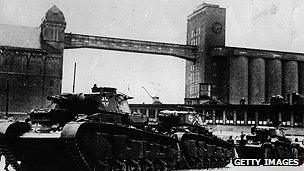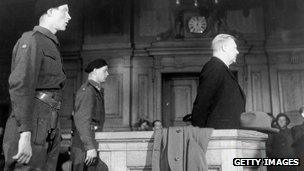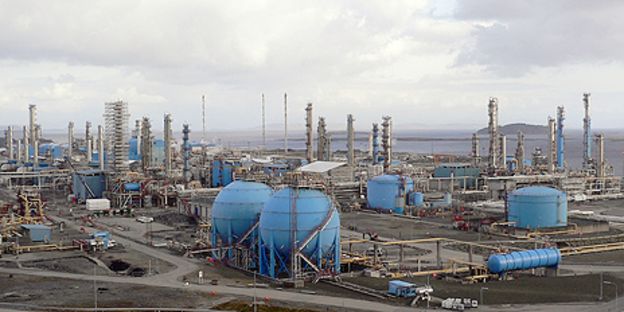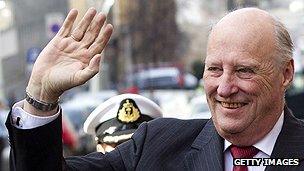經過了24個小時的漫長飛行,從亞洲邊陲到對角線的北歐邊陲-挪威。最初的概念從TED Talk上看到Thomas Hellum的演講。然後開始進入進一步閱讀關於這個國家的故事後,發現這個被殖民國與早期的台灣很像,翻開歷史是一段又一段被殖民的過去,人民講求為後代著想,小孩第一讓這邊沒有所謂的商務座,而只有親子座。(所以在公車火車上看到小孩子跑來跑去的玩耍很正常)。講信修睦同時社會風氣是講求社會主義與工黨為主流民意。對於環保的要求也讓他們的山區鐵路蓋了20年才完工。(講信用不是光說不練,車站與公車都不驗票,但是一旦在這邊有逃票紀錄,當下要罰款300倍以上,同時身份證留案底....實際上搭乘大眾交通工具是都有碰到查票)
<奧斯陸少年有點煩>讓人想看阿
等了一段時間之後,終於到機票降到可以接受(還是忍受XD)的價位時,決定一家人飛到地球的另外一端來體驗這個與我們很像的北歐國家(就歷史感覺上....),途中轉機了3次Hong Kong、Doha、Oslo才會抵達第1站Bergen(挪威歷史最悠久的城市,也是UNESCO認証的遺產)
Distribution of seats after the election:(from Wiki)
- Socialist Left Party (7)
- Labour Party (55)
- Centre Party (10)
- Green Party (1)
- Liberal Party (9)
- Christian Democratic Party (10)
- Conservative Party (48)
- Progress Party (29)
全程7小時的影片在Youtube可以看FullHD的鐵道之旅XD.
Profile of Norway and Taiwan(BBC) Timeline:
1030 - Christianity adopted.
1536 - Norway becomes a dependency of Denmark.
1814-1905 - Union with Sweden.
1905 - Norwegian parliament, the Storting, proclaims independence from Sweden. Norwegian people endorse decision in plebiscite. Prince Carl of Denmark becomes King.
1913 - Universal suffrage for women introduced. Norwegian women begin to play greater role in politics.
1914 - Norway, Sweden and Denmark agree to remain neutral during World War I.
1920 - Norway joins the League of Nations.
1929 - Norway suffers considerably as a result of the world economic depression. Trade, shipping and banks all post heavy losses. The value of the krone falls. Unemployment becomes severe and lasts until the beginning of World War II in 1939.
 GETTY IMAGES
GETTY IMAGESThe war years
1939 - Norway declares its neutrality at the outbreak of World War II, but this position becomes increasingly difficult to maintain.
1940 - German forces invade Norway in April, attacking important ports. Resistance last for two months. The Royal Family and the government flee to Britain in June. A government-in-exile is set up in London. Vidkun Quisling proclaims himself head of government in Norway.
1941 - Quisling introduces martial law due to widespread resistance and acts of sabotage by the Norwegian people.
Recovery and prosperity
1945 - German forces in Norway surrender in May. The King returns to Norway in June. Quisling is tried and executed for treason. Norway becomes a charter member of the United Nations. Reconstruction begins, with Norway's gross national product reaching pre-war levels within three years.
 GETTY IMAGES
GETTY IMAGES
1949 - Norway joins the North Atlantic Treaty Organisation (Nato).
1959 - Norway becomes founder member of the European Free Trade Association (Efta).
1967 - The Storting votes 136 to 13 to renew a previous Norwegian application to join the EEC.
Late 1960s - Oil and gas deposits discovered in the Norwegian sector of the North Sea.
1970s - Exploitation of oil and gas deposits begins. By the early 1980s they constitute nearly one-third of Norway's annual export earnings.
1972 - Norwegian voters reject the Labour government's recommendation on EEC membership by a margin of 6%. The government resigns.
 GETTY IMAGES
GETTY IMAGES
1973 - Norway signs a free trade agreement with the EEC.
1986 - International Whaling Commission imposes moratorium on whaling. Norway registers objections.
1991 - King Olaf V dies. He is succeeded by his son, Harald V.
1993 - Norway brokers peace negotiations between Israel and the Palestine Liberation Organisation, which lead to the Oslo accords.
Norway resumes commercial whaling despite international moratorium.
 GETTY IMAGES
GETTY IMAGES
1994 - Norwegians again reject membership of the European Union in a referendum, by a margin of about 5%.
2000 - Norway begins mediation between the government of Sri Lanka and Tamil separatists.
2000 March - Conservative government of Kjell Magne Bondevik resigns over question of how Norway should generate its power. He is succeeded by Labour leader Jens Stoltenberg who favours gas-powered generating plants, despite Norway's strict environmental laws.
2001 January - Tens of thousands protest in Oslo against the murder of a black teenager for which three neo-Nazi youths are subsequently jailed.
Environmentalists angered by decision to lift ban on export of whale meat and blubber. Controversy deepens when government orders cull of grey wolves, an endangered species in Europe, which it accuses of causing serious damage to livestock.
2001 September - Labour government of Jens Stoltenberg suffers heavy defeat in general election in which no single party wins enough votes to form a majority government.
2001 October - Conservatives, Christian People's Party and Liberals agree to form coalition government with support from far-right Progress Party and with Kjell Magne Bondevik as prime minister.
2003 May - Discovery of high levels of chemicals in whale meat leads to pregnant women being warned not to eat it.


沒有留言:
張貼留言
謝謝您的留言, 我會在收到通知後盡快回覆您的.
Thanks for your comment. l may reply once I got notification.